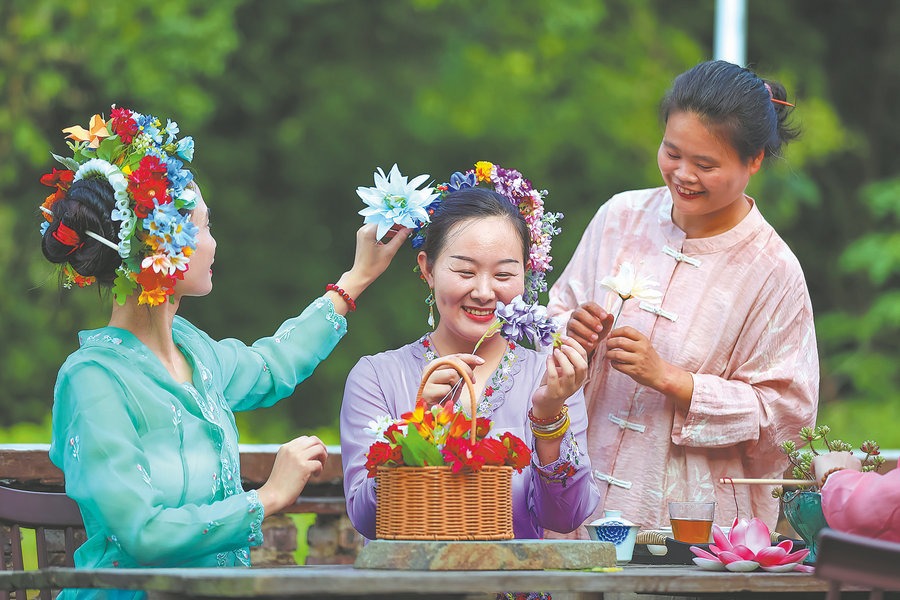Water project slakes thirsts and raises incomes


'Salty' memories
Even as a major trading hub in southern Xinjiang in ancient times, Jiashi was troubled by poor drinking water as a result of its arid climate, sparse rainfall and frequent earthquakes.
As one of the driest places in China, water was a rarity in the county, let alone potable water.
For decades, residents of the county, where over half the land is saline-alkali soil, had to get water from rain puddles, snow or glacial meltwater, or rivers.
Moreover, it could not be drunk for several days after collection until the dirt in it had settled, according to Jia.
"The puddle water tasted salty and bitter, and it contained many invisible pollutants that posed a threat to health, such as causing gastrointestinal illnesses," he said.
Maremsa, the dressmaker, recalled how she used to collect water for cooking and drinking from puddles.
"It was so salty that we didn't bother to add salt to our food," the 29-year-old said, adding that she often worried about the health of her two sons whenever she learned they had been drinking unfiltered puddle water.
Liu, from the water resources bureau, remembers that when he was a child some of his classmates had violent diarrhea or even died after drinking puddle water. "It wasn't unusual to see worms and frogs in the puddles, and the water we drank was also used for irrigating the farmland and feeding livestock," he said. "Everything could be found in that water, except cleanliness."
For a long time, the dirty water was a major reason for the county's impoverished status and also a stumbling block that prevented the residents from eradicating poverty, he added.
By the end of last year, some 25,000 poor people in Jiashi and Liangshan, Sichuan province, were still drinking unsafe water, and more than 60 percent of them were residents of Jiashi, according to a report by Xinhua News Agency in August.
























